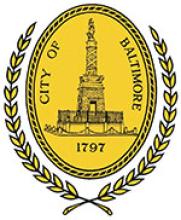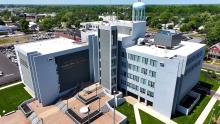
Back in 2010, we reported on the City of Baltimore and its frustration with Comcast and desire to have a real choice for Internet access. Nothing came of the idea at the time but the Baltimore Business Journal reports that Baltimore is once again considering the possibility of a publicly owned network.
The Board of Estimates recently decided to hire Magellan Advisors to provide a study that will offer several options for the community of 619,000 residents. The study will cost $157,000 and will identify key anchor tenants, cost analysis, and risk assessment related to a municipal broadband network.
Given Baltimore's situation, we doubt very much that they will proceed with a full-on universal FTTH network. Rather, we expect to see Baltimore considering an incremental approach that starts by serving community anchors (schools, libraries, public safety, etc.) and also may make conduit and fiber available for local businesses or other ISPs.
Comcast has no real competition in Baltimore, not because of the franchise as intimated by numerous factually incorrect articles covering this news, but because private companies are too intimidated by Comcast and its bag of dirty tricks to invest in a competitive system. No local government can establish a cable or Internet monopoly under federal law dating back to 1992.
According to the article, Baltimore already has some fiber assets:
A major part of what Magellan is being hired to study is what’s known as the city’s “fiber ring,” a 30-mile fiber optic cable network that supports the city’s public safety radio system. As the city prepares to make improvements to the system, [CIO Chris] Tonjes said the city also wants to add capacity through a process called “overbuilding” that would allow the city to lease some of the extra bandwidth to the private sector.
“We have a lot of ideas; a lot of people could lease it — a local Internet provider, a local cultural institution,” Tonjes said. “It could even be Comcast.”
Seattle ventured down this road for several years to no avail until Gigabit Squared came along. And Seattle had considerably more miles of fiber available. Even if Baltimore begins leasing its fiber to any entity that wishes to use it, there will still be no business case for expanding that fiber to residents. In the short term especially, the only beneficiaries will be businesses that spend enough on these services to attract interest from new ISPs. This is why Baltimore's plan should ultimately be geared toward the City being able to offer services, even if that is not anticipated for many years. It is the only way to guarantee everyone has access to fast, affordable, and reliable Internet connections.
Jason Hardebeck, the executive director of the Greater Baltimore Technology Council told the Business Journal that city leaders recognize the importance of robust connectivity to economic development.
“The city is woefully underserved with broadband and my opinion is that internet access is becoming a basic public utility or need, just like clean water,” Hardebeck said. “The current administration understands the need. I don’t know what we can do about the franchise agreement, but I think there’s real opportunities from a redevelopment standpoint. If you had access to ultra-high broadband inexpensively, that could generate activity you would not have anticipated.”







